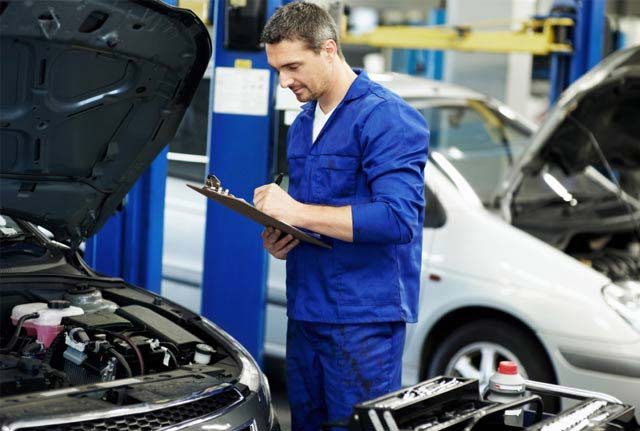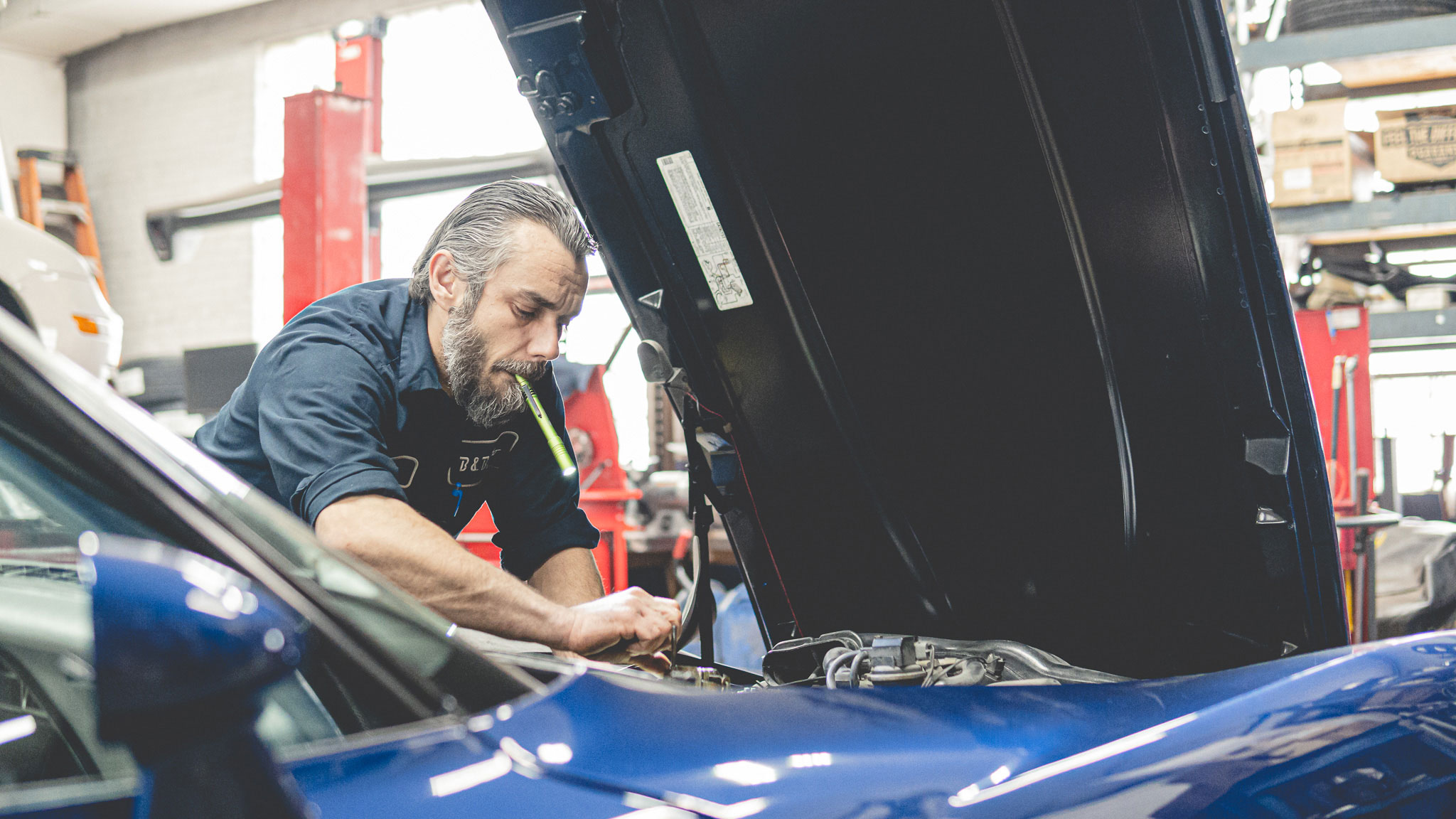Featured
When your auto begins to get too hot, it can be a stressful and frightening circumstance. Comprehending exactly how to react in these minutes and taking actions to prevent future overheating can assist safeguard your car and prevent expensive repair work. If your auto overheats and how to stop it from taking place once again., below's what to do.
What to Do If Your Cars and truck Gets too hot. Pull Over and Switch Off the Engine The very first thing you ought to do if your cars and truck starts to overheat is to pull over to a risk-free location, such as a car park or the shoulder of the roadway. Switch off the engine right away to protect against further damages. Running an overheated engine can cause irreversible damage to the inner components, consisting of the radiator and cylinder heads.
Allow the Engine to Cool off After switching off the engine, provide it time to cool. Opening up the hood can assist release warmth, but beware as the engine and bordering areas may still be very warm. Wait a minimum of 15-20 minutes before trying any type of further activities.
Inspect the Coolant Level Once the engine has cooled, examine the coolant degree. Never open up the radiator cap while the engine is hot, as this can cause hot coolant to spray and shed you.
Check for Leakages or Broken Hoses While you are inspecting the coolant level, check for any kind of noticeable leaks or harmed hoses under the hood. Cracked or damaged pipes can cause coolant to leak out, leading to an overheating engine. You might require to call for roadside aid or a tow to obtain the cars and truck to an auto mechanic. if you find any kind of problems.
Require Support If you can't identify the source of the problem or the overheating lingers after complementing the coolant, it's best to call for roadside assistance. Driving with an overheated engine can create serious damage to your auto and leave you stranded.
![]()
Exactly How to stop Your Car from Overheating. Inspect Coolant Degrees On A Regular Basis One of the primary reasons for getting too hot is reduced coolant degrees. Make it a habit to check your coolant degrees on a regular basis and top them off if required. Refer to your automobile's manual for the advised coolant mixture and upkeep periods.
Inspect Your Radiator Your radiator plays an essential duty in keeping the engine cool. Guarantee there are no clogs or particles blocking airflow via the radiator. If your radiator is clogged or damaged, it might not work correctly, resulting in getting too hot.
Maintain Your Cooling System The cooling system should be flushed and filled up periodically. In time, coolant can end up being infected or lose its performance. Follow the supplier's suggestions for purging the system, generally every 30,000 to 50,000 miles.
Screen the Thermostat and Water Pump The thermostat controls the temperature of the engine, while the water pump flows coolant with the engine. It can trigger the engine to overheat if either of these components fails. Have your mechanic examine the thermostat and water pump during normal upkeep.
Prevent Overloading the Lorry Overloading your lorry, specifically on long journeys or hot days, can stress the engine and the cooling system. Bear in mind your vehicle's weight limitations and attempt to avoid bring heavy loads, particularly when driving in severe temperature levels.
Drive with Care Aggressive driving, such as speeding or fast acceleration, can enhance engine tension and warm manufacturing. Reduce, especially on hot days or when increasing steep slopes, to lower the danger of overheating.
![]()
Verdict. Recognizing what to do if your auto gets too hot can stop further damages to your engine and aid you take care of the scenario safely. By routinely inspecting your coolant levels, checking the radiator and tubes, and preserving the cooling system, you can decrease the threat of getting too hot. With proactive treatment and appropriate upkeep, your lorry will remain in good problem, guaranteeing you remain secure and avoid pricey repair services down the roadway.
What to Do If Your Cars and truck Gets too hot. Pull Over and Switch Off the Engine The very first thing you ought to do if your cars and truck starts to overheat is to pull over to a risk-free location, such as a car park or the shoulder of the roadway. Switch off the engine right away to protect against further damages. Running an overheated engine can cause irreversible damage to the inner components, consisting of the radiator and cylinder heads.
Allow the Engine to Cool off After switching off the engine, provide it time to cool. Opening up the hood can assist release warmth, but beware as the engine and bordering areas may still be very warm. Wait a minimum of 15-20 minutes before trying any type of further activities.
Inspect the Coolant Level Once the engine has cooled, examine the coolant degree. Never open up the radiator cap while the engine is hot, as this can cause hot coolant to spray and shed you.
Check for Leakages or Broken Hoses While you are inspecting the coolant level, check for any kind of noticeable leaks or harmed hoses under the hood. Cracked or damaged pipes can cause coolant to leak out, leading to an overheating engine. You might require to call for roadside aid or a tow to obtain the cars and truck to an auto mechanic. if you find any kind of problems.
Require Support If you can't identify the source of the problem or the overheating lingers after complementing the coolant, it's best to call for roadside assistance. Driving with an overheated engine can create serious damage to your auto and leave you stranded.

Exactly How to stop Your Car from Overheating. Inspect Coolant Degrees On A Regular Basis One of the primary reasons for getting too hot is reduced coolant degrees. Make it a habit to check your coolant degrees on a regular basis and top them off if required. Refer to your automobile's manual for the advised coolant mixture and upkeep periods.
Inspect Your Radiator Your radiator plays an essential duty in keeping the engine cool. Guarantee there are no clogs or particles blocking airflow via the radiator. If your radiator is clogged or damaged, it might not work correctly, resulting in getting too hot.
Maintain Your Cooling System The cooling system should be flushed and filled up periodically. In time, coolant can end up being infected or lose its performance. Follow the supplier's suggestions for purging the system, generally every 30,000 to 50,000 miles.
Screen the Thermostat and Water Pump The thermostat controls the temperature of the engine, while the water pump flows coolant with the engine. It can trigger the engine to overheat if either of these components fails. Have your mechanic examine the thermostat and water pump during normal upkeep.
Prevent Overloading the Lorry Overloading your lorry, specifically on long journeys or hot days, can stress the engine and the cooling system. Bear in mind your vehicle's weight limitations and attempt to avoid bring heavy loads, particularly when driving in severe temperature levels.
Drive with Care Aggressive driving, such as speeding or fast acceleration, can enhance engine tension and warm manufacturing. Reduce, especially on hot days or when increasing steep slopes, to lower the danger of overheating.

Verdict. Recognizing what to do if your auto gets too hot can stop further damages to your engine and aid you take care of the scenario safely. By routinely inspecting your coolant levels, checking the radiator and tubes, and preserving the cooling system, you can decrease the threat of getting too hot. With proactive treatment and appropriate upkeep, your lorry will remain in good problem, guaranteeing you remain secure and avoid pricey repair services down the roadway.
Latest Posts
Canyon Crest Event Center: The Ideal Venue for Your Memorable Day.
Published Jan 04, 25
1 min read
Choosing the Best Commercial Roof for Your Business: A Complete Guide
Published Jan 04, 25
1 min read
5 Budget-Friendly Fencing Options for Small Farms
Published Jan 04, 25
1 min read
More
Latest Posts
Canyon Crest Event Center: The Ideal Venue for Your Memorable Day.
Published Jan 04, 25
1 min read
Choosing the Best Commercial Roof for Your Business: A Complete Guide
Published Jan 04, 25
1 min read
5 Budget-Friendly Fencing Options for Small Farms
Published Jan 04, 25
1 min read